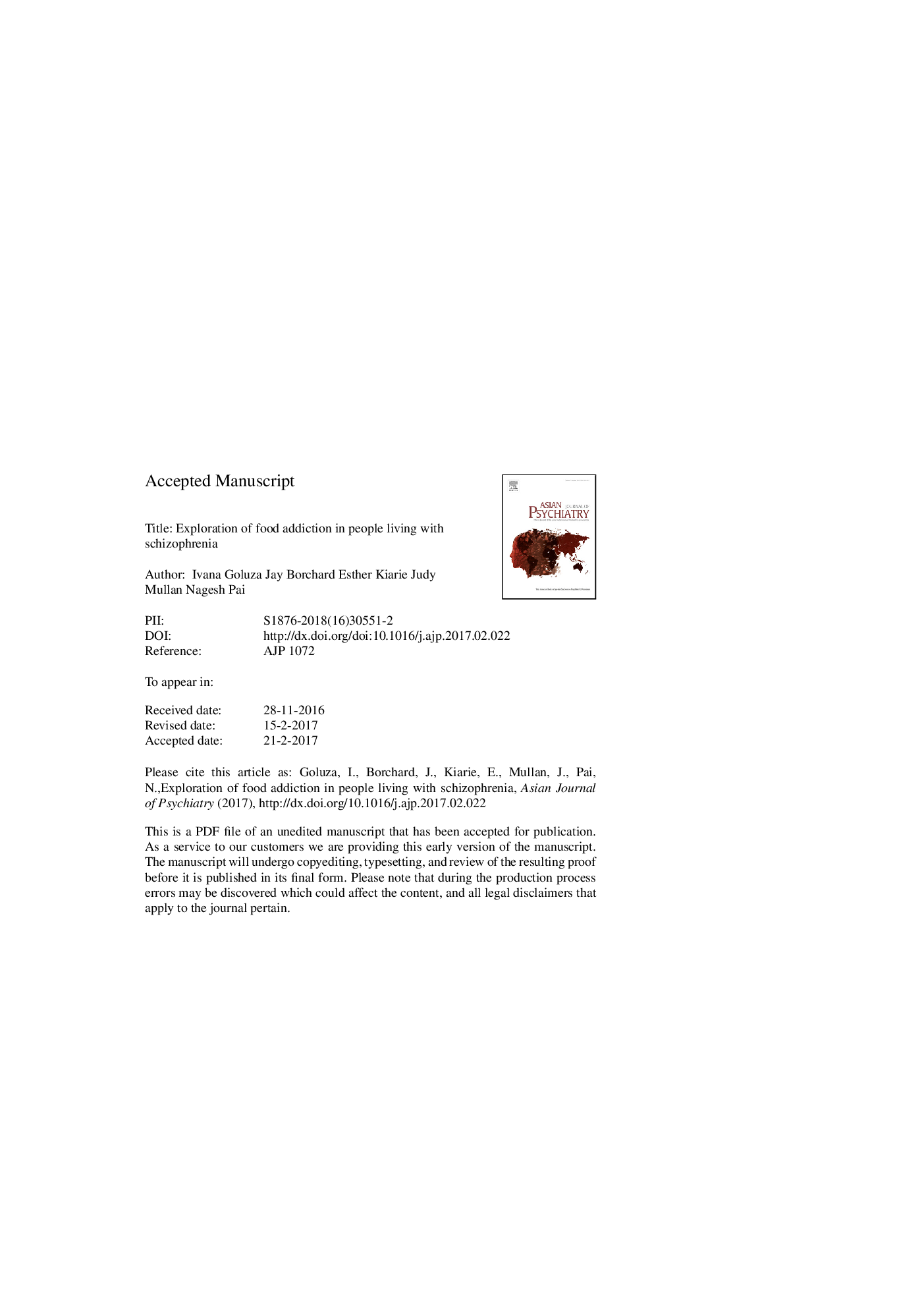| Article ID | Journal | Published Year | Pages | File Type |
|---|---|---|---|---|
| 4930007 | Asian Journal of Psychiatry | 2017 | 9 Pages |
Abstract
The term food addiction (FA) denotes a concept among researchers and lay consumers as a behavioural phenotype related to excessive food consumption. In this study we examined the prevalence of FA using the validated Yale Food Addiction Scale (YFAS) as well as the dimensional symptom count. In addition, we explored associations between participant characteristics and FA diagnosis. Outpatients attending a clozapine clinic and possessing a diagnosis of schizophrenia were invited to complete an anonymous survey using the YFAS. Ninety three surveys were used to calculate the diagnostic YFAS criteria for FA. The prevalence of FA found in this sample was 26.9%. Among individuals who did not meet “diagnostic” criteria FA, 77.4% endorsed 3 or more symptoms but did not report distress or impairment. The most common food addiction symptom was a persistent desire or repeated unsuccessful attempts to cut down consumption (97.9%). The significant finding in association between individual's characteristics and diagnosis of FA was employment. Several factors related to reported results are postulated and discussed. The current study has found the prevalence of FA amongst people living with schizophrenia to be higher than the general populations but not as high as populations with disordered eating.
Related Topics
Life Sciences
Neuroscience
Neuroscience (General)
Authors
Ivana Goluza, Jay Borchard, Esther Kiarie, Judy Mullan, Nagesh Pai,
